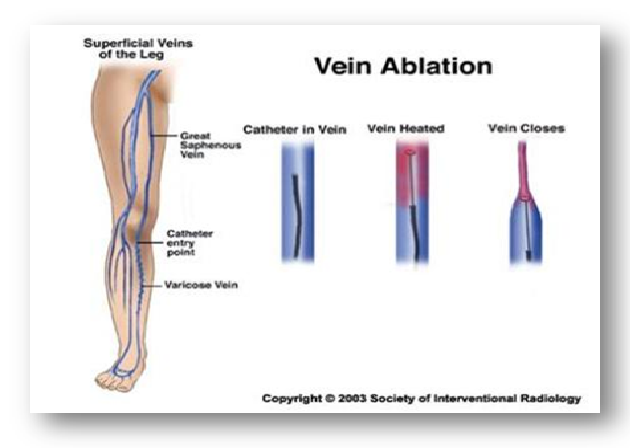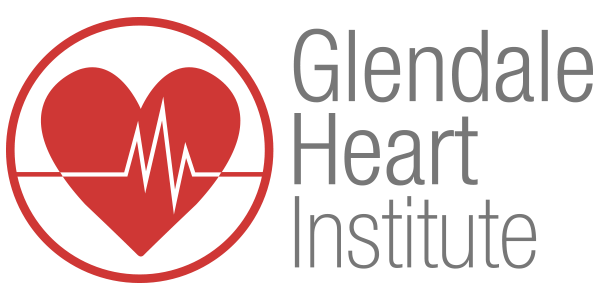
Radiofrequency ablation is a minimally invasive treatment for varicose veins. (Ablation means a doctor uses heat to damage tissue, which makes scar tissue form. This scar tissue closes the vein.) This technique uses radiofrequency energy (instead of laser energy) to heat up and damage the wall inside a vein. This usually closes off a varicose vein in the leg.
To treat a varicose vein, radiofrequency energy is directed through a thin tube (catheter) inserted through a small incision in the vein. It can be used on large veins in the leg and can be done in an office setting using local anesthesia or a mild sedative. You will be able to walk following the treatment and recovery typically is short.
After treatment, you will wear compression stockings for 1 week or more. To follow up, your doctor will use duplex ultrasound to make sure that the vein is closed.
Is it safe?
Possible side effects of radiofrequency ablation include:
To treat a varicose vein, radiofrequency energy is directed through a thin tube (catheter) inserted through a small incision in the vein. It can be used on large veins in the leg and can be done in an office setting using local anesthesia or a mild sedative. You will be able to walk following the treatment and recovery typically is short.
After treatment, you will wear compression stockings for 1 week or more. To follow up, your doctor will use duplex ultrasound to make sure that the vein is closed.
Is it safe?
Possible side effects of radiofrequency ablation include:
Cardiac Specialty Care
• Structural Heart Disease
• TAVR
• CardioMEMS (Heart Failure)
• PFO Closure
• TAVR
• CardioMEMS (Heart Failure)
• PFO Closure
• Coronary Intervention
• Complex Higher-Risk (And Indicated) Patients (CHIP) Angioplasty
• Atherectomy
• Impella and ECMO Support
• Complex Higher-Risk (And Indicated) Patients (CHIP) Angioplasty
• Atherectomy
• Impella and ECMO Support
• Peripheral Angioplasty
• Varicose Vein Treatment (Venous Ablation)
• DVT thrombectomy - IVC filter
• Carotid Stenting
• Varicose Vein Treatment (Venous Ablation)
• DVT thrombectomy - IVC filter
• Carotid Stenting
• Rhythm Management
• Pacemaker
• Holter Monitoring
• Exercise Stress Test
• Echocardiography
• Nuclear Stress Test
• Enhanced External Counterpulsation (EECP)
• Pacemaker
• Holter Monitoring
• Exercise Stress Test
• Echocardiography
• Nuclear Stress Test
• Enhanced External Counterpulsation (EECP)
